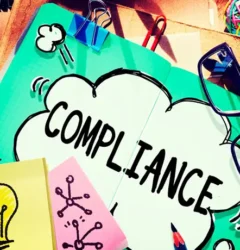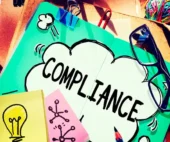As the UAE intensifies its regulatory efforts to combat money laundering and terrorist financing, real estate firms face increasing pressure to comply with stringent Know Your Customer (KYC) and risk assessment requirements. Manual due diligence is no longer enough—automation is the key to staying compliant, efficient, and competitive in today’s real estate landscape.
This blog explores how real estate companies in the UAE can leverage technology to streamline KYC and automate risk checks, ensuring robust compliance while saving time and resources.
Why KYC and Risk Assessment Are Critical in UAE Real Estate
Real estate brokers and developers are classified as Designated Non-Financial Businesses and Professions (DNFBPs) under Cabinet Decision No. 10 of 2019. They are legally obligated to:
- Verify customer identity (KYC)
- Identify and verify Ultimate Beneficial Owners (UBOs)
- Assess the source of funds
- Classify customer risk (low, medium, or high)
- Conduct enhanced due diligence for high-risk clients
- File reports such as the Real Estate Activity Report (REAR), Suspicious Transaction Report(STR)
Failure to comply can lead to fines, license suspension, and reputational damage.
Challenges with Manual KYC and Risk Checks
- Time-consuming verification processes
- Human errors in data entry and document checks
- Difficult to keep up with regulatory updates
- No centralized dashboard for compliance tracking
- Higher operational costs due to duplication of work
How Automation Solves These Challenges
1. Digital KYC Onboarding
With AML software like WinGuardAML, firms can:
- Collect client documents securely online
- Extract data using OCR (Optical Character Recognition)
- Auto-fill forms and validate against government-issued ID databases
- Flag incomplete or inconsistent data instantly
Result: Faster onboarding with fewer errors.
2. Real-Time Sanctions and PEP Screening
Clients can be screened instantly against:
- Sanctions lists (UN, OFAC, EU)
- Politically Exposed Persons (PEP) databases
- Adverse media coverage
Automated screening ensures that no high-risk individuals are onboarded unknowingly.
Result: Real-time risk alerts and reduced exposure.
3. Automated Risk Scoring and Classification
Based on inputs like nationality, transaction size, source of funds, and client profile, the system can automatically:
- Assign a risk level (low/medium/high)
- Trigger Enhanced Due Diligence (EDD) if needed
- Store audit logs for future inspections
Result: Standardized, risk-based approach to compliance.
4. Periodic Customer Re-screening
AML compliance doesn’t end after onboarding. Automation enables scheduled re-screening of customers, which is critical for:
- Detecting new sanctions/PEP status
- Updating expired documents
- Reviewing transaction patterns
Result: Continuous monitoring without burdening staff.
5. Automated REAR Filing Support
For real estate transactions above the reporting threshold, platforms like WinGuardAML support:
- Automated data capture for REAR
- Validation checks before submission
- Upload-ready formats for goAML portal
Result: Timely, accurate reporting with minimal manual intervention.
Conclusion
In a highly regulated environment like the UAE, automating KYC and risk assessments isn’t just a smart move—it’s a necessity. AML platforms such as WinGuardAML empower real estate companies to reduce compliance burdens, avoid regulatory penalties, and onboard clients securely and efficiently.
If your firm is still relying on spreadsheets and manual checks, now is the time to embrace automation and future-proof your AML compliance.









